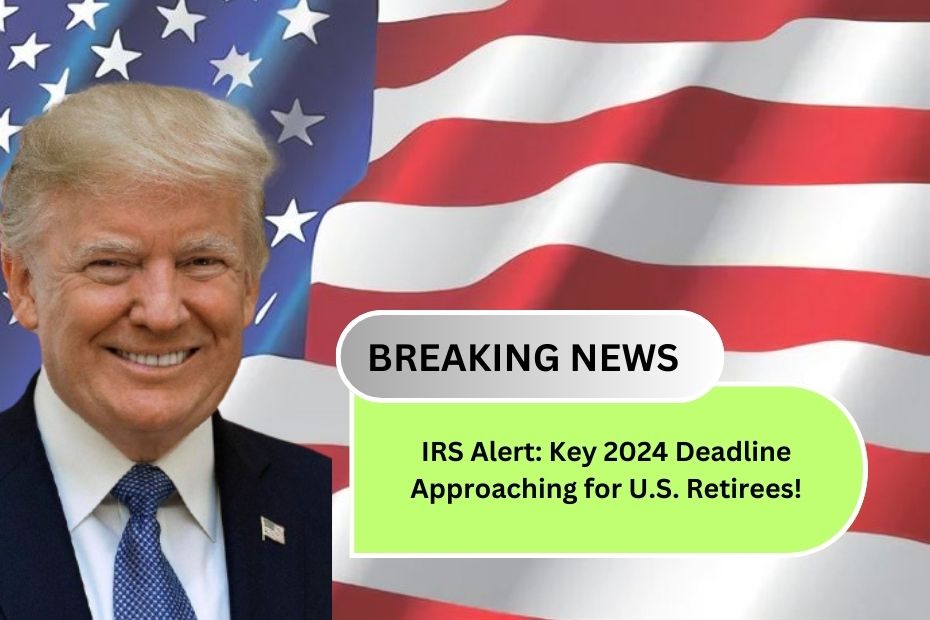The IRS has issued an important reminder to retirees about upcoming deadlines for withdrawing funds from their retirement accounts. If you are 73 years old or older, it’s crucial to make these withdrawals before the end of the year. Failure to do so can result in penalties and other issues. This notice is especially relevant for people who have retirement accounts like IRAs, SEP IRAs, SIMPLE IRAs, or similar plans. In this article, we will explain why retirees need to take action and what the IRS rules are about retirement account withdrawals.
What is the Required Minimum Distribution (RMD)?
The IRS has a rule known as the Required Minimum Distribution (RMD). This is the amount of money that retirees must withdraw from their retirement accounts each year. The rule applies to those who are 73 years old or older, and it is designed to ensure that retirees don’t leave their money in their retirement accounts indefinitely.
Retirees who have traditional retirement plans like IRAs (Individual Retirement Accounts), SEP IRAs, SIMPLE IRAs, and other similar plans must take out a certain amount of money each year starting at age 73. If they don’t, they could face penalties. The IRS treats these withdrawals as taxable income, so retirees need to withdraw the minimum amount set by the IRS to avoid any financial consequences.
Why is the RMD Rule Important for Retirees?
The Required Minimum Distribution is an essential part of retirement planning. Without this rule, retirees could leave large sums of money in their accounts, which would not be taxed until much later. This could lead to a buildup of wealth in the account, which may not be in line with the IRS’s guidelines. The RMD ensures that money is withdrawn at regular intervals, keeping the tax system fair for everyone.
When you reach the age of 73, the IRS expects you to start withdrawing from your retirement accounts. Failing to do so can lead to hefty penalties, which can be as high as 50% of the amount you were supposed to withdraw. So, it’s important to stay on top of these deadlines.
The Role of Roth IRAs in RMDs
There are some exceptions to the RMD rule. For example, Roth IRAs are different from other retirement accounts. The IRS does not require withdrawals from Roth IRAs while the account holder is alive. This rule also applies to Roth accounts in 403(b) or 401(k) plans.
However, if you inherit a Roth IRA or a Roth 401(k), the rules change. As a beneficiary, you will be required to take minimum distributions from the account. The amount and frequency of these distributions will depend on various factors, such as the age of the original account holder.
What Happens if You Miss the Deadline?
If you are 73 or older and miss the deadline for your Required Minimum Distribution, the IRS can impose serious penalties. The penalty for not withdrawing the required amount is steep—50% of the amount you should have taken out. This is a huge financial setback and can affect your retirement savings significantly.
It’s also important to keep track of the amounts you withdraw. If you take out more than the required minimum, you might pay more taxes. But, if you withdraw less than what the IRS requires, you’ll face the penalty. That’s why it’s essential to understand the RMD rules and make sure you withdraw the correct amount.
IRS Updates in the SECURE 2.0 Act
The SECURE 2.0 Act, which was recently introduced, includes important updates to retirement plan rules. This law has changed some retirement account withdrawal rules, including those related to Required Minimum Distributions. For example, the new law adjusts the age when retirees are required to start taking distributions.
These updates are important for retirees to understand because they could affect the amount of money they need to withdraw and when. Retirees should stay informed about these changes to avoid penalties and make the most of their retirement accounts.
Conclusion: Stay on Top of Your Retirement Account Withdrawals
It’s crucial for retirees, especially those who are 73 years or older, to be aware of the IRS rules surrounding Required Minimum Distributions. Missing a withdrawal deadline can lead to severe penalties, so it’s important to plan ahead and withdraw the necessary funds on time.
If you are a beneficiary of a Roth IRA or another designated retirement account, make sure you understand the RMD rules that apply to you. While you may not need to take withdrawals from your Roth IRA during your lifetime, beneficiaries must follow specific guidelines.
Frequently Asked Questions (FAQ)
1. What is a Required Minimum Distribution (RMD)?
A Required Minimum Distribution (RMD) is the minimum amount of money that retirees must withdraw from their retirement accounts, like IRAs or 401(k)s, once they reach 73 years old. This ensures that retirees use their savings during their lifetime and pay taxes on the withdrawn funds.
2. Why is it important for retirees to follow the IRS withdrawal rules?
Following the IRS withdrawal rules is important to avoid penalties. If retirees do not take the required minimum distribution, they can face a penalty of up to 50% of the amount they should have withdrawn, which can lead to a significant loss of savings.
3. Do Roth IRAs have the same withdrawal requirements as other retirement plans?
No, Roth IRAs do not require withdrawals while the account holder is alive. However, beneficiaries of a Roth IRA or a designated Roth account in a 403(b) or 401(k) must follow the required minimum distribution rules after inheriting the account.

